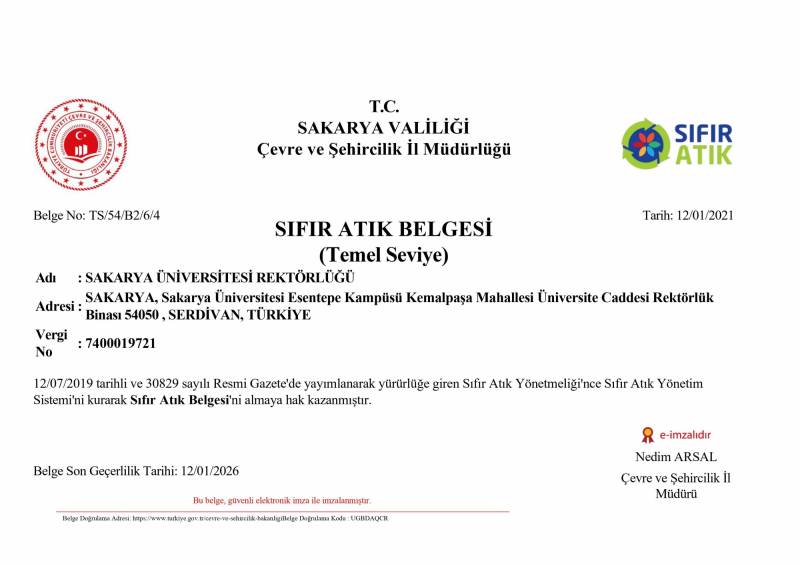Sakarya University adheres to the "Water Pollution and Control Regulation" (Su Kirliliği ve Kontrolü Yönetmeliği) issued by the Ministry of Environment, Urbanization, and Climate Change, establishing stringent guidelines for water quality and discharge practices to protect ecosystems, wildlife, and public health [URL]. In compliance, the university ensures wastewater passes through primary purification filters before discharge, with oil filters installed in channels where oily waste is common, such as cafeterias. Collaboration with the Sakarya Water and Sewerage Administration (SASKİ) helps prevent wastewater from contaminating the clean water network.
Given Sakarya's location in a high-risk earthquake zone, additional safeguards are implemented to protect wastewater channels from potential seismic activity. The Sakarya Metropolitan Municipality has laid a steel transmission line in the university area to reinforce these protections. Furthermore, filters are installed across all wastewater discharge areas to mitigate contamination risks, underscoring the university’s commitment to maintaining water quality standards for environmental and public health.
 |
| Zero Waste Certificate |
Sakarya University has a comprehensive action plan to reduce plastic waste on campus as part of its commitment to the Zero Waste initiative, supported by the Ministry of Environment, Urbanization, and Climate Change. Our Zero Waste Policy file is attached below. This initiative aims to prevent environmental pollution, reduce waste, ensure a cleaner environment for future generations, and contribute to the economy [URL] [URL].
In alignment with this initiative, the university has placed 1,200 waste bins for students and staff at accessible locations across campus buildings. These bins are organized with a three-compartment system for plastic-glass-metal, paper, and other waste, with additional battery recycling bins at each building entrance. A color-coded bag system has also been implemented, collecting paper waste in blue bags, plastic-glass-metal waste in yellow bags, and general waste in dark gray bags, following the Zero Waste Regulation.
Recyclable waste collected on campus is delivered to a licensed recycling company in partnership with the local municipality, while general waste is managed by municipal services.